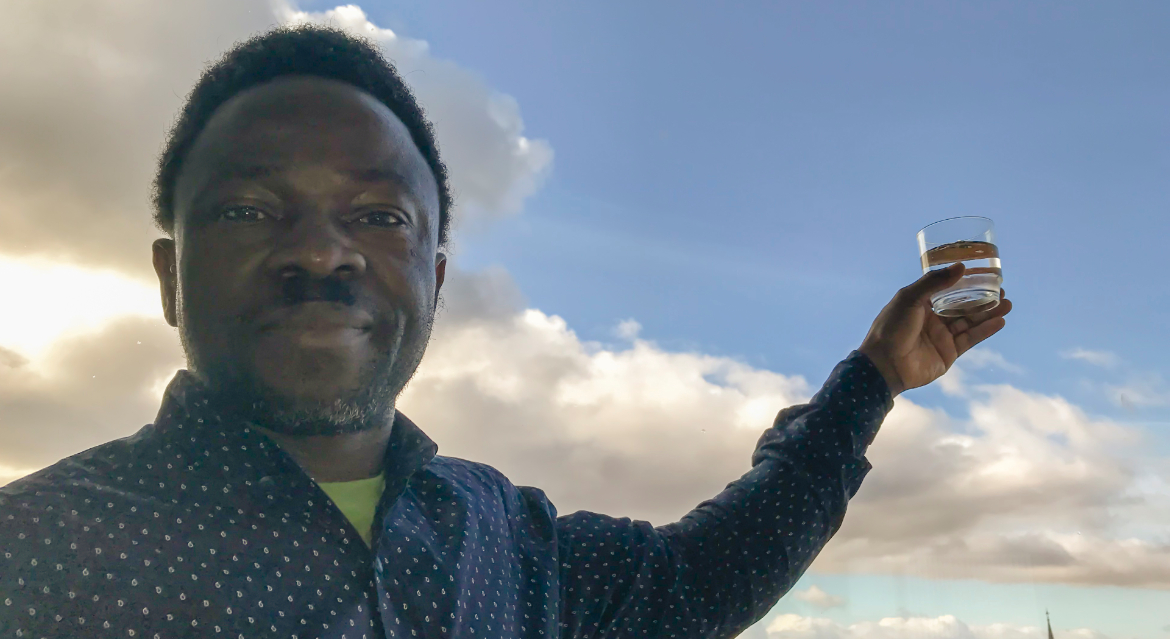Drought of knowledge threatens water supplies
Published On Mon 18 Mar 2019 by Jonathan Watson

The people of Scotland need to re-evaluate their relationship with water as part of a global effort to make supplies sustainable.
Dr Emmanuel Akpabio, a research fellow at the University of Dundee, says that education is crucial in ensuring that safe, sustainable water supplies are available to every person, regardless of their location.
A lecturer in Human Geography at the University of Uyo in Nigeria, Dr Akpabio is currently spending two years in Dundee researching water policy and its implementation around the world.
To mark United Nations World Water Day on Friday 22 March, he will be hosting a talk, ‘Everyday Geographies of Water, Sanitation and Hygiene: Leaving No One Behind in sub-Saharan Africa’, at the University’s Dalhousie Building from 4.30 – 6.30pm.
Keen to ensure that his message trickles in to the public consciousness, he said, “Water use is a global issue.
“The 2014 Ebola outbreak highlighted how cultural habits in Africa could impact on populations around the world and that is why everybody must take an interest in how we treat this most precious of resources.
“Education is central to this issue, not only in sub-Saharan Africa, but in Scotland as well. Just because we are surrounded by water here there is still a responsibility to use it properly. I want my talk to open people’s eyes as to how valuable water is and how little things, like turning taps off when brushing our teeth, can help manage this.”
A specialist in environmental and resource management, Dr Akpabio is examining how world governments can improve and coordinate water policy to increase accessibility to safe water supplies.
In December, he brought together politicians, academics and water industry figures in the Nigerian capital Abuja to discuss the need to improve water policy and public sanitation advice within the country, and is planning a similar event in the Malawian capital, Lilongwe, next month.
As well as highlighting the widespread threat to life posed by unsafe drinking supplies, Dr Akpabio said that he is keen to make members of the public aware of the social disparities surrounding water in parts of Africa.
“There are issues of inequality around water in sub-Saharan Africa which need to be addressed,” he added.
“For example, water collection and management is often left to women, and that one person is responsible for that limited amount of water and how it is used for multiple purposes, such as washing, bathing and drinking, possibly exposing a family to disease.
“Children are also compromised as they too are often involved in the water gathering process, which can affect their school studies. The disabled are also at an extreme disadvantage, as the facilities we see here in Scotland to help people with restricted mobility are not always found in Africa.
“These are factors that are often overlooked, yet are crucial to address if we want access to water to be equal to everybody.”
Organised by the Dundee Africa Research Network, Dr Akpabio’s talk, 'Everyday Geographies of Water, Sanitation and Hygiene: Leaving No One Behind in sub-Saharan Africa', takes place in the University of Dundee’s Dalhousie Building, Old Hawkhill, from 4.30 - 6.30pm on Friday 22 March.
Entry is free and all are welcome to attend. Further information is available by emailing DARN@dundee.ac.uk.
For media enquiries contact:
Jonathan Watson
Media Relations Officer
University of Dundee
Nethergate, Dundee, DD1 4HN
Tel: +44 (0)1382 381489
Email: j.s.watson@dundee.ac.uk